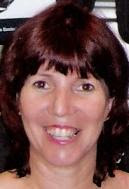Grammar is Important
Nouns, Verbs, Adverbs and Adjectives
By Debbie Roome
 The very mention of nouns, verbs and adjectives may transport us back to school days but a clear understanding of their function is essential when working as a writer. Although many writers have a natural aptitude for grammar and punctuation, it’s always good to brush up on the basics and make sure that we are doing things correctly.
The very mention of nouns, verbs and adjectives may transport us back to school days but a clear understanding of their function is essential when working as a writer. Although many writers have a natural aptitude for grammar and punctuation, it’s always good to brush up on the basics and make sure that we are doing things correctly.Nouns
A noun is a word that refers to a person, animal, object, place or concept. A common noun tells us what something is and begins with a lower-case letter:
· Pig, chair, hatred, apple, exuberance
These can be further divided into abstract nouns and concrete nouns. Abstract nouns refer to concepts or acts such as hatred and exuberance. Concrete nouns refer to things that can be seen, touched, smelt or felt such as pigs, chairs and apples.
Proper nouns begin with a capital letter and are names of people and places:
· Texas, Robert Smith, The Great Wall of China
A pronoun is a word that replaces or refers to a previously named noun:
· Peter (noun) braked sharply before he (pronoun) came to an abrupt halt.
· The Nile River (noun) twists and turns as it (pronoun) approaches the sea.
Verbs
Verbs are words that show or express an action, an occurrence or state of being. Examples include:
· Be, doze, sprint, shine, exist, decompose
Different forms of the verb indicate when the action took place:
· Will play, plays, played
· Will go, goes, gone
Infinitives are the to form of the verb:
· To run
· To smile
· To walk
Infinitives remain the same regardless of the tense.
Split infinitives occur when a verb is divided by an adverb or other modifier:
· To slowly wander
· To also give
· To loosely tie
Although people often speak like this, it is not grammatically correct and should be avoided when writing.
Adverbs
Adverbs are words that describe, modify or add information to a verb. Most editors hate them and many manuscripts are returned with all the ly words deleted.
· Her injury caused her to swim badly.
· John jogged speedily back to his car.
Adjectives
These are words that describe or modify the noun or pronoun in a sentence. They often precede the noun they are describing:
· She held a silver pencil in her hand.
· Matthew was a handsome man.
· The old woman stumbled as she stepped off the bus.
Adjectives also come in the form of comparative and superlative adjectives. Comparative adjectives are formed by adding er or the words more or less before it.
· The sun was redder than the trees.
· The sun was more red than the trees.
Superlative adjectives are formed by adding est or the words most or least before it.
· Taylor's ball was the reddest.
· Taylor's ball was the least red.
The superlative form is used when comparing more than two nouns.
This is a basic overview but serves to clarify the things we do automatically. Once we have a firm grasp of grammar, it makes it easier to concentrate on the story line rather than the structure surrounding it.
Debbie Roome works as a freelance writer from her home in New Zealand. Current projects include a contract for writing devotionals, contributions to the local paper, editing and production of a community newsletter and compilation of her church’s year book. Read some of her work at Suite 101 and Faithwriters.

























2 comments:
Very helpful article, Debbie. Thanks!
I heard a term the other day I had not heard before - transitive verb. I left the room before I heard the answer - what is a transitive verb?
One of my dear friends, Kathy Ide, wrote a GREAT book that will help writers of all skill levels with all sorts of basics like this - it's called POLISHING THE PUGS: Punctuation, Usage, Grammar, and Spelling. It's an excellent resource to have in your library.
Thanks, Debbie!
Thank you this post was a big help to me.
Theresa N
weceno(at)yahoo(dot)com
Post a Comment